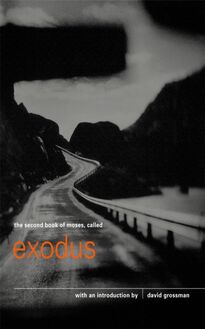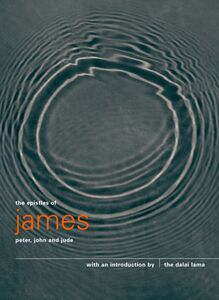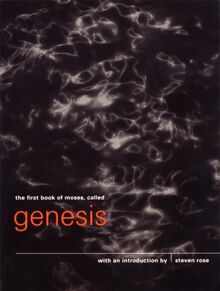Epistles of James, Peter, John and Jude , livre ebook
18
pages
English
Ebooks
1999
Vous pourrez modifier la taille du texte de cet ouvrage
Obtenez un accès à la bibliothèque pour le consulter en ligne En savoir plus
Découvre YouScribe et accède à tout notre catalogue !
Découvre YouScribe et accède à tout notre catalogue !
18
pages
English
Ebooks
1999
Vous pourrez modifier la taille du texte de cet ouvrage
Obtenez un accès à la bibliothèque pour le consulter en ligne En savoir plus
Publié par
Date de parution
01 janvier 1999
Nombre de lectures
2
EAN13
9780857861108
Langue
English
Contents
Title Page a note about pocket canons introduction by his holiness the dalai lama the general epistle of james 2 3 4 5 Copyright
introduction by his holiness the dalai lama
His Holiness the 14th Dalai Lama, Tenzin Gyatso, is the head of state and spiritual leader of the Tibetan people. He was born in 1935 to a peasant family and recognised as the reincarnation of the 13th Dalai Lama at the age of two. He began his monastic Buddhist education when he was six. ‘Dalai Lama’ is a Mongolian title meaning ‘Ocean of Wisdom’. In 1959 he was forced into exile with the brutal suppression of the Tibetan National Uprising in Lhasa by Chinese troops. For the last 39 years he has been living in Dharamsala, India. As leader of the Tibetan Government- in-Exile he advocates democracy and autonomy for the Tibetan people from Chinese rule. In his lectures and tours around the world he emphasises the importance of love, compassion and forgiveness. His publications in English include Ancient Wisdom Modern World and his autobiography Freedom in Exile . His Holiness was awarded the Nobel Prize for Peace in 1989 .
As I read the lines of this Epistle of James , I am struck by the similarities between this beautiful letter in the Bible and some of the texts in my own Buddhist tradition, especially those that belong to a genre known as lojong , literally meaning ‘training the mind’. As with lojong texts, I believe, this epistle can be read on different levels. On the practical level, however, it encapsulates many of the key principles that are crucial for learning how to be a better human being. More precisely, it teaches us how to bring our spiritual vision to life at the highest possible level.
I feel humbled to be invited to write an introduction to this important part of the Christian scriptures. As we enter a new millennium and Christians all over the world celebrate two thousand years of their tradition, I am reminded that this holy scripture has been a powerful source of spiritual inspiration and solace to millions of fellow human beings world-wide. Needless to say, I am no expert on Christian scriptures. I have, however, accepted the invitation to comment personally on the epistle from the perspective of my own Buddhist tradition. I will particularly focus on passages that evoke values and principles also emphasised in the Buddhist scriptures.
The epistle begins by underlining the critical importance of developing a single-pointed commitment to our chosen spiritual path. It says, ‘A double minded man is unstable in all his ways’ (James 1:8), because lack of commitment and a wavering mind are among the greatest obstacles to a successful spiritual life. However, this need not be some kind of blind faith, but rather a commitment based on personal appreciation of the value and efficacy of the spiritual path. Such faith arises through a process of reflection and deep understanding. Buddhist texts describe three levels of faith, namely: faith as admiration, faith as reasoned conviction, and faith as emulation of high spiritual ideals. I believe that these three kinds of faith are applicable here as well.
The epistle reminds us of the power of the destructive tendencies that exist naturally in all of us. In what is, for me at least, the most poignant verse of the entire letter, we read, ‘Wherefore, my beloved brethren, let every man be swift to hear, slow to speak, slow to wrath: for the wrath of man worketh not the righteousness of God’ (James 1:19-20).
These two verses encapsulate principles that are of utmost importance to a spiritual practitioner, and for that matter, any individual who aspires to express his or her basic human goodness. This emphasis on hearing as opposed to speaking teaches us the need for open-heartedness. For without it we have no room to receive the blessings and positive transformation that we might otherwise experience in our interaction with our fellow human beings.
Open and receptive, swift to listen to others, we should be slow to speak, because speech is a powerful instrument that can be highly constructive or profoundly destructive. We are all aware how seemingly harmless speech can actually inflict deep hurt upon others. Therefore, the wise course is to follow the advice of one well-known Buddhist lojong text: ‘When amongst many, guard your speech and alone, guard your thoughts.’
The instruction that we should be ‘slow to wrath’ reminds us that it is vital to ensure some degree of restraint over powerful negative emotions like anger, for actions motivated by such states of mind are almost invariably destructive. This is something we must both appreciate and strive to implement in our everyday lives. Only then can we hope to reap the fruit of living a spiritual life.
The real test of spiritual practice lies in the practitioner’s behaviour. There is sometimes a tendency to think of the spiritual life as primarily introspective, divorced from the concerns of everyday life and society. This, I believe, is plainly wrong and is also rejected in this epistle. Faith that does not translate into actions is no faith at all, as the text says:
If a brother or sister be naked, and destitute of daily food, and any of you say unto them, ‘Depart in peace, be ye warmed and filled’; notwithstanding ye give them not those things which are needful to the body; what doth it profit? Even so faith, if it hath not works, is dead, being alone (James 2:16-17).
We find a similar principle in Buddhist texts as well. They advise that when helping others, giving material aid comes first, speaking words of comfort comes second, giving spiritual counsel comes third, while fourth is demonstrating what you teach by your own personal example.
I have long been an admirer of the Christian tradition of charity and social work. The image of monks and nuns devoting their entire lives to the service of humanity in the fields of health, education and care of the poor is truly inspiring. To me, these are true followers of Christ, demonstrating their faith in compassionate action.
The epistle addresses what a Buddhist might call ’contemplation of the transient nature of life.’ This is beautifully captured in the following verse: ‘Whereas ye know not what shall be on the morrow. For what is your life? It is even a vapour, that appeareth for a little time, and then vanisheth away’ (James 4:24).
In the Buddhist context, contemplation of life’s transient nature brings a sense of urgency to our spiritual life. We may be aware of the value of spiritual practice, but in our daily lives, we tend to behave as if we will live for a long time. We have a














